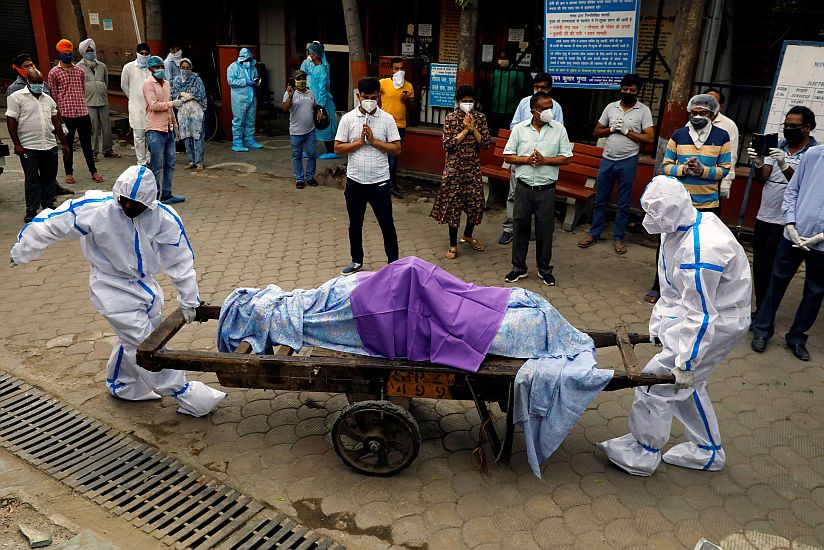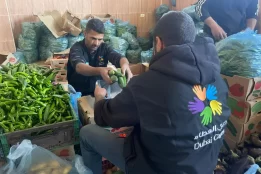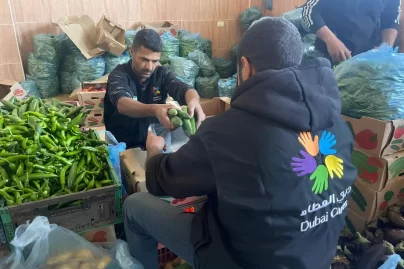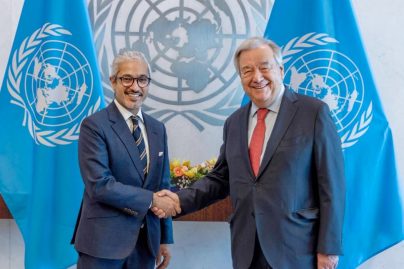Covid-19 in India: The guilt of the living
Fri 07 May 2021
It’s been a week and the images are still stuck in one corner of my head. Refusing to go away. Shaking me out of my sleep at nights.
Last Thursday I lost my brother-in-law. And it’s not the death that has affected me as much as the indignity, the humiliation a human being had to go through in his last hours. Me and my sister watched him die on the floor of the emergency of a government hospital back in Aligarh, 140 kms from India’s capital New Delhi.
I was in Aligarh to look after my ill parents. My brother-in-law was also not keeping well for a few days, Usual fever, cough etc. He had other health complications too. At 8 am last Thursday, my sister called in a panic. “He is unable to breathe. What do we do.” I rushed to their house. His Oxygen level was 55. I panicked too. We rushed him to the JN Medical College Emergency only to be told that they had no beds or ICU. His O2 level had in those 20 minutes dropped to 30. The doctor at JN Medical College told me that he needed a ventilator urgently. And they didn’t have one to offer.
We left the hospital helpless, with his breathing turning more and more labored with every passing second. A cousin called a few other hospitals in the city. Same response: No beds, ICU, Oxygen or ventilator”.
I stopped at a private hospital near JN Medical College. No relief came our way there either. My brother-in-law at this point just wanted to go home. “Asim, Ghar”(Asim take me home), is all that he could manage to speak while gasping.
A relative called to say that fresh Oxygen stock had arrived that morning at another govt-run hospital, Deen Dayal Upadhyay, and I should rush there. I sped up. He was struggling to breathe in the back seat of my car. This is what race against time looks like. My sister was trying to console him, telling him we’ll reach the hospital in a few minutes.
He still just wanted to go home.
We helped him out of the car with great difficulty. By this time, he could hardly move. His arms around our shoulders, me and my sister somehow dragged him inside the Emergency of the Deen Dayal Upadhyay Hospital. I could see Oxygen cylinders being unloaded from a truck.
That is what hope looks like.
But my hope didn’t last more than a few seconds. As we stepped into the Emergency, I shouted for help. But none came. There was no doctor at the Emergency at 9:30 am. We tried to ease him into a wheelchair. He slipped. The two of us could not hold his body. He was lying on the floor, barely breathing. Me and my sister were shouting for a doctor to come and attend to him. Two cops sitting in one corner of the large room didn’t move. Hospital staff got a mat and asked me to shift him on to it. I literally dragged his seemingly lifeless body from the floor onto the mat. He stopped breathing.
At this point, another hospital worker dragged an Oxygen cylinder and put it on to him. No motion or breathing. Too late. No sign of life. After running around the hospital corridors for about 30 minutes, I got hold of a doctor. The Oximeter turned blank. “He is no more,” the doctor declared to my crying sister.
There he was. My brother-in-law dead on the floor. Gone within an hour. No help came his way as he struggled to breathe in his final hour.
I saw three other patients being brought in, collapsing and dying in the same manner in that Emergency area in the 30-odd minutes that we were there. People falling like dried leaves.
No human deserves to die like this. Panting, rubbing heels against the hospital floor. No person deserves to watch their loved ones die like this in sheer helplessness.
The indignation doesn’t end with death. The hospital refused a hearse van because he was not admitted there. A private ambulance guy was out to mint money. No one would offer a helping hand to move the body. A cousin had arrived by then. We literally had to drag his body outside the Emergency, put on a stretcher and shove it at the back of an ambulance.
Those images of hands flinging out of the stretcher, head dangling, his body being denied dignity in death refuse to go away.
Amid all this trauma, I couldn’t find a moment to hug and console my crying sister who saw her partner and father of their two kids die in the most crushing manner. I hugged her after putting the body in the ambulance. “hum kuch nahin kar paaye” (We couldn’t do anything). These were the only words I could say to her.
It’s not my tragedy alone. It’s our collective tragedy. My brother-in-law became one of the countless Indians dying in total helplessness.
We journalists tend to look at tragedies as news stories. Wailing and crying people are just footage for us. Until the tragedy strikes at home. I won’t be able to look at someone in distress as just “shots” anymore. Every human deserves dignity in death. And a final prayer.
Staring at Mohsin bhai’s body lying lifeless on that floor, I gathered why he was insisting on going home while still struggling to breathe. Maybe he just wanted to breathe his last in peace, comfort, and company of his family. I could not provide him that dignity and comfort in his last hour.
That is the guilt of the living…
Disclaimer: All views and opinions expressed in The Brew View – our opinion section – are those of the authors and do not necessarily reflect the official policy or position of TheBrew.ae, the company, or any of its members.

 Apr 19 2024
Apr 19 2024













